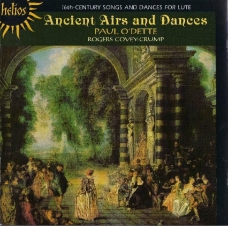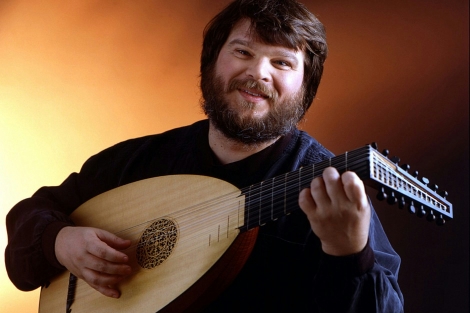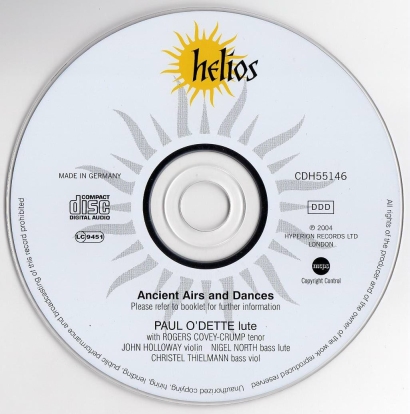| Site menu |
|
 |
| Search |
|
 |
| Our poll |
|
 |
| Statistics |
Total online: 1 Guests: 1 Users: 0 |
 |
| Login form |
|
 |
|
Main » 2011 » August » 24
 At the very peak of
the British Invasion, few bands were as universally embraced as Herman's
Hermits. Cheeky, cute, and capable of pumping out a piece of pure pop
bliss now and again, they represented the clever, commercial phase of
the movement. At the very peak of
the British Invasion, few bands were as universally embraced as Herman's
Hermits. Cheeky, cute, and capable of pumping out a piece of pure pop
bliss now and again, they represented the clever, commercial phase of
the movement.
While The Beatles were experimenting with new sounds and
structures and The Rolling Stones were perfecting their blues-based cock
rock, Peter Noone and the boys rode a wave of sunny sentiment that
would equally illuminate such other ancillary acts as Freddy and the
Dreamers, Peter and Gordon, and Chad and Jeremy. As with many music
phenomenons, movies were seen as a quick way to lay claim to more
international attention. After all, the Fab Four more or less invented
the idea with A Hard Day's Night (don't tell that to UK idol Cliff Richards, though).
After a couple of cameos and a surreal space race comedy (Hang On), one of their most famous songs was used as the basis for a buoyant British class comedy. At the time, Mrs. Brown You've Got a Lovely Daughter must have played like a subversive slice of Manchester madness. Today, it's a curio cast in an equally confusing light. And this is the soundtrack ... beat goes easy listening !
Karl Green (bass, vocals)
Keith Hopwood (guitar, vocals)
Derek Leckenby (guitar, vocals)
Peter Noone (vocals)
Barry Whitwam (drums)
Tracklist:
01. It´s Nice To Be Out InThe Morning (Gouldman) 2.26
02. Holiday Inn (Stephens) 2.22
03. Ooh, She´s Done It Again (Gouldman) 2.16
04. There´s A Kind Of Hush (All Over The World) (Reed/Stephens) 2.34
05. Lemon And Lime (Gouldman) 2.44
06. The Most Beautiful Thing In My Life (Young) 1.54
07. Daisy Chain, Pt. 1 (Green/Hopwood/Leckenby/Noone) 2.50
08. Daisy Chain, Pt. 2 (Green/Hopwood/Leckenby/Noone) 1.58
09. The World Is For The Young (Gouldman) 2.44
10. Mr.s Brown You´ve Got A Lovely Daughter (Peacock) 2.48
11. Regardez-Moi (Young) 3.21
12. Years May Come, Years May Go (Fishman/Popp) 3.38
13. Smile Please (King/Most/Noone) 2.42
14. Bet Yer Life I Do (Brown/wilson) 2.37
15. Searching For The Southern Sun (Green/Hopwood/Leckenby) 2.41
16. Lady Barbara (Bigazzi/Wilson) 3.43
17. Don´t Just Stand There (King/Most/Noone/Spiro) 3.43
18. Big Man (Belland/Larson) 2.20
19. Wings Of Love (Campbell/Spyropoulos) 3.18
20. Mum And Dad (Callander) 2.01ARMU 0061
Views:
1306
|
Added by:
Riffmaster
|
Date:
2011-08-24
|
|
 Time was when the majority of records of late
medieval and renaissance music were made up of social music and above
all dances; it was almost an inevitable stage in the creation of a taste
for the music of the period that it was initially represented by an
essentially unrepresentative aspect of its soundworld, almost as if the
eighteenth century had been portrayed with Mozart's German Dances to the
fore but without the opera and the piano concerto. Now all that has
changed as more and more of the major works are recorded, but there is
still a place for sensitively-performed selections of the lighter
repertories, and the present record is an attractive example. Time was when the majority of records of late
medieval and renaissance music were made up of social music and above
all dances; it was almost an inevitable stage in the creation of a taste
for the music of the period that it was initially represented by an
essentially unrepresentative aspect of its soundworld, almost as if the
eighteenth century had been portrayed with Mozart's German Dances to the
fore but without the opera and the piano concerto. Now all that has
changed as more and more of the major works are recorded, but there is
still a place for sensitively-performed selections of the lighter
repertories, and the present record is an attractive example.
The inspiration for the selection itself is Respighi's three popular
orchestral suites called Ancient Airs and Dances, and Paul O'Dette has
carried out an interesting piece of detective work in tracking down
Respighi's sources (the composer himself disguised them) to the
transcriptions of the pioneering Italian musicologist Oscar Chilesotti.
One of the most attractive features of the performances themselves is
their varied timbre; O'Dette himself plays both the eight- and
ten-course lute, archlute and even (on the final track) a baroque
guitar, and Nigel North adds a bass lute to Besard's Bransles de
village. The readings of these instrumental pieces are neatly tailored
and graciously shaped whilst still retaining that flexibility of rhythm
and tactus that are the hallmark of the style. Then, in addition, there
is Rogers Covey-Crump's gentle rendering of Boësset's Divine Amaryllis,
and above all his quietly elegiac account of six airs de cour by
Jean-Baptiste Besard. The lightness of his tone is well suited to the
mood of these pieces, and the carefully-considered improvised
embellishment is a nice and appropriate touch. Finally, both violin and
viol make a brief appearance in a single track, Laura soave based on the
famous Ball del Granduca from the 1589 Florentine intermedi, one of the
most exploited bass patterns of its time.
All in all this is a delightful record, sensitively recorded to capture all the immediacy of these simple, domestic pieces. (by Gramophone, June 1988) 
Personnel:
Rogers Covey-Crump (vocals)
Paul O´Dette (lute, guitar)
John Holloway (violin)
Nigel North (bass lute)
Christel Thielmann (bass Viola da gamba)
Tracklist:
01. Ballo detto il Conte Orlando (Molinaro) 2.21
02. Saltarello del predetto ballo (Molinaro) 1.44
03. Polymnia (Galilei) 1.22
04. Chilesotti Lutebook: Volte (Anonymous) 1.59
05. Chilesotti Lutebook: Villanella (Anonymou) 1.41
06. Chilesotti Lutebook: Italiana (Anonymous) 1.12
07. Chilesotti Lutebook: Passo mezzo bonissimo (Anonymous) 2.35
08. Barriera (Caroso) 1.17
09. Laura Soave (Caroso) 5.22
10. Branles de Village (Besard) 3.26
11. Chilesotti Lutebook: Campanae Parisienses (Anonymous) 1.19
12. Airs de cour: Divine Amaryllis (Boësset) 2.55
13. Il liuto: Bergamasca (Gianoncelli ) 0.46
14. La Cesarina (Garsi) 0.46
15.
Airs de Cour: C'est malheur (Besard) 3.03
16.
Airs de Cour: Beaux yeux (Besard) 2.35
17. Airs de Cour: La voila la nacelle d'amour (Besard) 1.53
18. Airs de Cour: Quelle Divinité (Besard) 4.36
19. Airs de Cour: Si c'est pour mon pucellage (Besard ) 2.02
20. Chilesotti Lutebook: Spagnoletta (Anonymous) 1.59
21. Capricci armonici sopra la chitarra spagnola: Passacaglia (Roncalli) 3.53
22. Tasteggiata (Gianoncelli) 0.47
23. Airs de Cour: Adieu bergère (Guédron) 1.37

Views:
1496
|
Added by:
Riffmaster
|
Date:
2011-08-24
|
| |
|
|
| Entries archive |
|
 |
| Site friends |
Coming soon
|
 |
| Tag Board |
|
|

|


|



